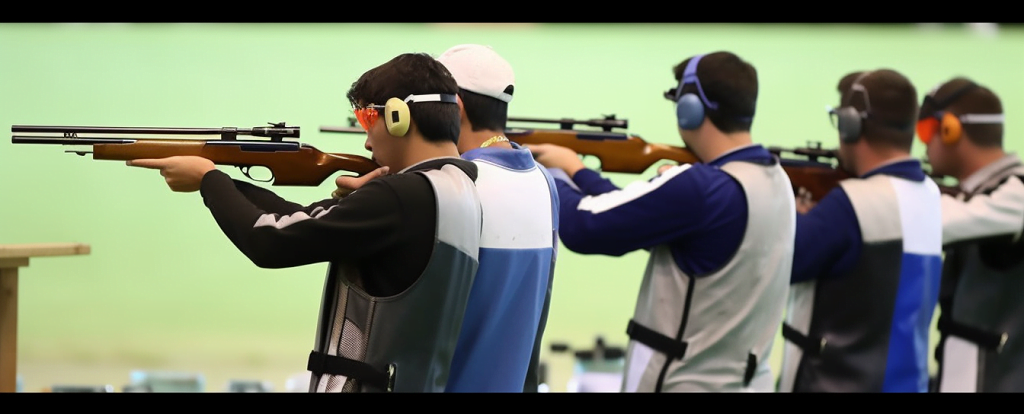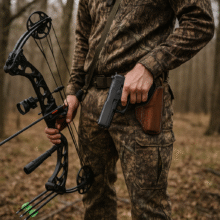Sport Shooting: The Perfect Blend of Precision and Passion

Sport shooting is a captivating and dynamic discipline that combines precision, skill, and a passion for firearms. Whether it’s target shooting, clay pigeon shooting, or practical shooting competitions, this sport offers participants an opportunity to showcase their marksmanship abilities in a controlled and competitive environment. In this article, we will delve into the world of sport shooting, exploring its various disciplines, equipment, training, and the unique thrill it brings to shooting enthusiasts.
Table of Contents
- Table of Contents
- 1. Introduction to Sport Shooting
- 2. Popular Disciplines in Sport Shooting
- 3. Equipment and Gear
- 4. Training and Skill Development
- 5. Competitions and Events
- 6. Benefits of Sport Shooting
- 7. Safety Measures and Responsible Shooting
- 8. Frequently Asked Questions (FAQs)
- 9. Conclusion: A Journey of Skill and Passion
Table of Contents
1. Introduction to Sport Shooting
The Art of Precision
In the realm of sport shooting, precision and accuracy reign supreme. This discipline necessitates shooters to become well-versed in the fundamentals of marksmanship, such as maintaining the proper stance, grip, sight alignment, and trigger control. By dedicating themselves to relentless practice and training, shooters aim to consistently achieve their targets with pinpoint accuracy.
A Blend of Skill and Passion
Moreover, sport shooting transcends being a mere hobby; it is a passion that combines technical skill with a profound appreciation for firearms. As shooters delve into their chosen discipline, they cultivate a profound understanding, continuously refining their abilities and pushing their limits. The unwavering dedication and commitment required to excel in sport shooting forge a unique bond among enthusiasts.
2. Popular Disciplines in Sport Shooting
Target Shooting
Target shooting, a popular activity among shooting enthusiasts, involves shooting at stationary paper or metal targets at various distances. It puts a shooter’s accuracy and precision to the test, as they must carefully aim and fire at designated scoring zones. Target shooting can be practiced both indoors and outdoors, offering a wide range of firearms categories, such as pistols, rifles, and shotguns.
Clay Pigeon Shooting
Clay pigeon shooting, also known as clay target shooting or skeet shooting, involves shooting at clay discs launched into the air. This dynamic discipline simulates the flight patterns of birds, challenging shooters to track and hit the moving targets. Clay pigeon shooting requires focus, hand-eye coordination, and quick reactions.
Practical Shooting
Practical shooting, also known as action shooting or IPSC (International Practical Shooting Confederation), is a dynamic sport that combines accuracy, speed, and movement. Shooters engage in scenario-based courses, where they must navigate through obstacles, engage multiple targets, and complete the course in the fastest time possible while maintaining accuracy.
3. Equipment and Gear
Firearms and Ammunition
The choice of firearms depends on the discipline and category of sport shooting. Pistols, rifles, and shotguns are the most common firearms used. Shooters, depending on their shooting style, preferences, and competition requirements, select firearms. Additionally, ammunition requirements differ based on the discipline, necessitating adherence to specific caliber and projectile regulations.
Safety Gear and Accessories
Safety is paramount in sport shooting. Shooters are required to wear protective gear, including shooting glasses and ear protection, to safeguard against potential hazards. Additionally, accessories such as holsters, magazine pouches, and shooting vests help shooters carry and access their equipment efficiently.
Optics and Sights
Optics and sights play a crucial role in sport shooting, enhancing accuracy and target acquisition. Red dot sights, scopes, and open sights are commonly used to assist shooters in aiming and engaging targets with precision. The choice of optics depends on the discipline and shooting distances involved.
4. Training and Skill Development
Safety and Range Etiquette
Safety serves as the foundation of sport shooting, as shooters must undergo safety training and adhere to strict safety protocols at all times. Range etiquette, such as respecting range rules, handling firearms responsibly, and communicating effectively with fellow shooters, is essential for a safe and enjoyable shooting experience.
Fundamentals of Shooting
In order to succeed in sport shooting, it is essential to master the fundamentals. Shooters devote their attention to developing proper stance, grip, sight alignment, trigger control, and follow-through. By engaging in regular practice and training sessions, shooters can hone these skills, leading to enhanced accuracy and consistency in their performance.
Mental Preparation and Focus
Sport shooting requires not only physical skill but also mental fortitude. Shooters learn to manage stress, maintain focus under pressure, and develop a resilient mindset. Mental preparation techniques, such as visualization, breathing exercises, and mental rehearsals, help shooters optimize their performance on the range.
5. Competitions and Events
Local and National Competitions
Sport shooting offers a range of competitions at local and national levels, providing shooters with opportunities to showcase their skills and compete against fellow enthusiasts. These competitions promote camaraderie, healthy competition, and personal growth. Shooters can participate in various disciplines and categories, allowing them to explore different shooting styles and challenges.
International Shooting Competitions
For those seeking a higher level of competition, international shooting events provide a platform to compete on a global scale. Shooters can represent their countries and challenge themselves against the world’s best marksmen. International shooting competitions foster cultural exchange, friendship, and a shared passion for the sport.
Olympic Shooting Events
Shooting has been a part of the Olympic Games since its inception in 1896. Olympic shooting events showcase the pinnacle of marksmanship, where elite athletes from around the world compete for gold, silver, and bronze medals. Olympic shooting disciplines include pistol, rifle, and shotgun events, each demanding exceptional precision and skill.
6. Benefits of Sport Shooting
Physical and Mental Discipline
Sport shooting offers both physical and mental benefits. The physical demands of shooting, such as maintaining stability, controlling breathing, and engaging muscles, improve overall physical fitness. Furthermore, the mental discipline required to focus, concentrate, and manage stress enhances cognitive abilities and promotes mental well-being.
Stress Relief and Relaxation
Engaging in sport shooting can provide stress relief and a sense of relaxation. The concentration required during shooting sessions allows shooters to temporarily disconnect from everyday concerns and immerse themselves in the present moment. The satisfaction of hitting targets and achieving personal goals brings a sense of accomplishment and joy.
Building Focus and Concentration
Sport shooting hones focus and concentration, as shooters must eliminate distractions and maintain unwavering attention on the task at hand. This heightened focus can translate to other areas of life, enhancing productivity, decision-making abilities, and overall mental acuity.
7. Safety Measures and Responsible Shooting
Firearm Safety Rules
Safety is of utmost importance in sport shooting. Shooters must adhere to strict firearm safety rules, including always treating firearms as if they are loaded, keeping fingers off the trigger until ready to shoot, and pointing the firearm in a safe direction. Familiarity with range-specific safety rules and protocols is crucial for a safe shooting environment.
Proper Range Practices
Shooting ranges have specific rules and regulations that shooters must follow to ensure the safety of everyone present. These practices may include designated shooting lanes, defined shooting positions, and range commands. Shooters should familiarize themselves with range rules and communicate effectively with range officers and fellow shooters.
Legal and Ethical Considerations
Shooters must adhere to all legal requirements and regulations governing sport shooting in their respective jurisdictions. This includes obtaining the necessary licenses, permits, and adhering to local firearms laws. Additionally, ethical considerations, such as respecting private property, wildlife, and the environment, are integral to responsible shooting practices.
8. Frequently Asked Questions (FAQs)
Q1: What are the different types of firearms used in sport shooting?
A1: Sport shooting involves a variety of firearms, including pistols, rifles, and shotguns. The choice of firearm depends on the specific discipline and category of shooting.
Q2: Can anyone participate in sport shooting competitions?
A2: Sport shooting welcomes participants of various skill levels, ages, and backgrounds. However, individuals must meet the legal requirements and safety standards to participate in competitions.
Q3: How can I get started in sport shooting?
A3: To get started in sport shooting, it is advisable to seek training from qualified instructors or join shooting clubs and ranges that offer introductory courses. Familiarize yourself with the discipline you wish to pursue, acquire the necessary equipment, and practice regularly to develop your shooting skills.
9. Conclusion: A Journey of Skill and Passion
Sport shooting is an exhilarating and captivating sport that combines precision, skill, and a deep passion for firearms. From the discipline of target shooting to the thrill of clay pigeon shooting and the dynamic challenges of practical shooting, this sport offers a unique platform for shooters to showcase their marksmanship abilities. Through training, competitions, and responsible shooting practices, sport shooting enthusiasts embark on a journey of personal growth, camaraderie, and the endless pursuit of excellence. So, grab your firearm, take aim, and immerse yourself in the captivating world of sport shooting!







